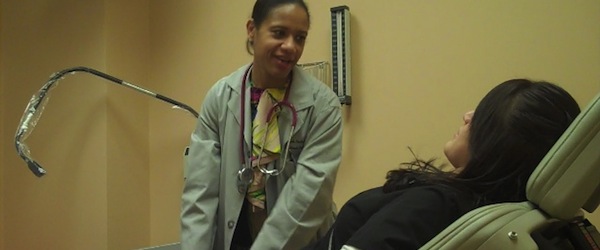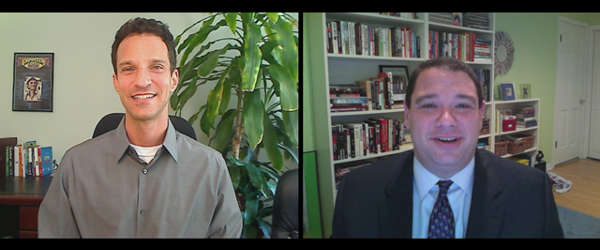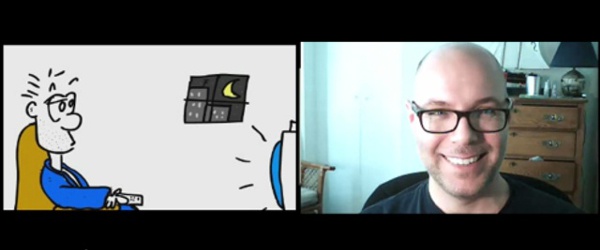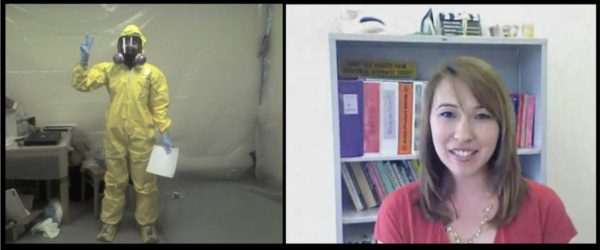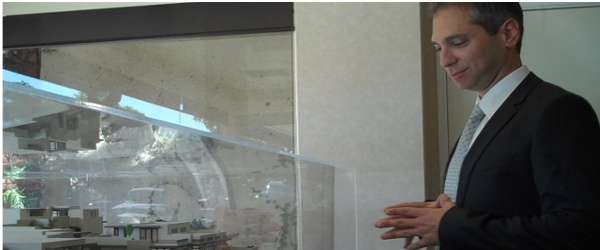Environmental Health Careers
Today’s guest is an industrial hygienist with an environmental health degree. Wondering what that means? I was too! Industrial hygienist careers are focused on protecting people in the workplace from potential hazards like exposure to dangerous chemicals. Industrial hygienists are environmental scientists who can come from a variety of backgrounds. Our guest tells us that as an occupational health and safety consultant, her job is like going on a field trip every single day!
SNEAK PEEK (Full Episode below)
|
Today’s Guest
 Certified Industrial Hygienist: Meagan Yoshimoto-Clark
Certified Industrial Hygienist: Meagan Yoshimoto-Clark
College: University of Washington in Seattle, WA
College Major: Environmental Health
High School: Kalani High School in Honolulu, HI
First Job Ever: Administrative assistant at uncle’s engineering firm
Worst Job Ever: A particular client site visit
Industrial Hygienist Careers
Industrial hygienist careers are unique because they require you to be a scientist and a workplace detective. An industrial hygienist brings both a technical background to the table as well as observation skills, people skills, and communication skills. The ability to speak to all kinds of workers of all different backgrounds and education levels is an important part of industrial hygienist careers.
Environmental Health Degree
Meagan explains that although she got an environmental health degree, people can break in to industrial hygienist careers by majoring in things like geology, chemistry, biology and engineering as well as industrial hygiene. She says there are also plenty of people in industrial hygienist careers who didn’t graduate from college. They may not go as far on the career path, but people who come from manufacturing and construction backgrounds can combine their technical know-how with their social skills to do well in these environmental health careers.
FULL EPISODE (#39)
For our Audio Podcast: Careers Out There on iTunes
TRANSCRIPT OF TODAY’S INTERVIEW
Who Fits Industrial Hygienist Careers 11:02-17:11
Education For Industrial Hygienist Careers 17:11-22:57
Most Rewarding Part of Industrial Hygienist Careers 22:57-24:43
Most Challenging Part of Industrial Hygienist Careers 24:43-28:43
Breaking In To Industrial Hygiene Careers 28:43-33:$3
Keys To Success For Industrial Hygiene Careers 33:43
Careers Out There Host Marc Luber: Hey everyone – on today’s episode of Careers Out There we’re gonna explore environmental health careers. We’ll be talking to Meagan Yoshimoto Clark. She’s a certified industrial hygienist who works for a health and safety consulting firm in Seattle. On every episode of Careers Out There, we’re helping you find a career that fits you. We explore a career path by talking to a real professional who does that kind of work – and they tell us what it’s really like and share all kinds of advice with us to help YOU decide if it’s the kind of path you want to pursue. I’m your host Marc Luber and until a week ago, I’d never even heard of industrial hygiene careers. So I’m psyched Meagan’s here today to share her more than 6 years of experience with us so we can all learn together. It’s gonna be a great show so stick around! [theme song] OK we’re back! Meagan, welcome to Careers Out There.
Industrial Hygienist Meagan Yoshimoto-Clark: Thank you. Happy to be here!
[WHAT DO INDUSTRIAL HYGIENISTS DO starts at 0:56]
Host Marc Luber: Great. I’m glad you’re here. So Meagan, I was telling the audience in the intro that I’d never even heard of industrial hygiene careers until a week ago when we talked. So can you tell us what that is and what an industrial hygienist does?
Meagan Yoshimoto-Clark: Yeah absolutely! I didn’t know what industrial hygiene was before college either. And my family still really doesn’t understand what I do all that well! But industrial hygienists are scientists focused on protecting people in the workplace: protecting them from potential hazards. We don’t deal with environmental concerns like protecting water quality, protecting air quality. We focus on protecting people at work. So that might be a construction site, it might be a manufacturing facility, it might be a hospital or schools or even homes. There are hazards in all kinds of work environments and people need to be aware of them and comply with safety rules.
Luber: So these ARE environmental hazards, right? You’re saying you’re not dealing with the environment but you mean you’re not dealing with nature in that sense, but you are dealing with the workplace environment, right?
Meagan: Correct. Absolutely. The “built” environment is what we call it versus protecting bugs and bunnies.
Luber: Ha! OK. So someone could be working in a factory and they could be getting exposed to some kind of horrible poison. You’ve gotta figure that out and solve the problem.
Meagan: Yes. And the real challenge becomes in our modern world there are all kinds of new products and new chemicals being developed all the time. And so while we have a good idea about some of the older ones, the newer ones don’t have reliable test methods and we don’t really know what their effect on people will be.
Luber: Ha! You know what I found real interesting? On the phone you were telling me about the history of industrial hygiene. Tell everyone about that.
Meagan: Sure! Industrial hygiene is a relatively new field and it started off about 100 years ago with the realization that your job has a big effect on your health and it came about through physicians examining sick patients and realizing the importance of asking these people what their jobs were. For example, they’d see a lot of men with lung problems who worked in the mines. So it seemed to be a logical connection to make between your job and your health. Another example is there are people who make hats and they use mercury in the felting process and mercury damages your brain and nerves and so you had these people who basically went crazy! And you get the term “mad hatter”, like the character in Alice in Wonderland!
Luber: Ha! I love Alice in Wonderland! So tell me this – you were saying that you work with things like even chemo drugs. I talk a lot on the website about cancer because my mom passed away from cancer and I’ve featured some cancer charities, so I’m always curious about that. And that also sheds some light on other aspects of what you do for our audience – can you tell us an example with a chemo drug what you would do with that?
Meagan: Yeah, absolutely. Chemo drugs are kind of a double-edged sword. They can help people who have cancer but if you don’t have cancer it’s possible to get cancer from being exposed to chemo drugs. And some of the population that might have potential exposures to chemo drugs are those health care technicians who mix the chemo drugs or the nurses who administer the chemo drugs. And so we might have industrial hygienists go in and work at the workplace where they’re mixing and administering the drugs and figure out how to prevent contact with the drugs and keep those health care personnel from developing cancers in their attempts to heal others who already have it.
Luber: Such a cool career! It’s so different! I have so many questions for you – I want to know how you do it and how you know how to do it, but before we even get to that, I want to learn about a typical day so that we could kind of picture what an industrial hygienist is doing just on a normal day. Can you walk us through that?
Meagan: Well I’m a consultant. I don’t have any one particular client. We work for many around the local area. So a typical day for me would be having already coordinated the job with the client and the day we’re gonna show up. I would come into the office and gather equipment and that could be sampling equipment, meters, air monitors and lab forms and all the things we’d need to collect samples and investigate the site. And that also includes safety gear for us.
Luber: Talk about the safety gear. You sent me some great pictures of you. I’ll put them up here. A crazy suit and a crazy mask! What’s that all about?!
Meagan: Yes! When you don’t know what hazards are gonna be in the environment, and often times we don’t, we want to err on the side of caution so we have all these chemical resistant suits and there’s different levels of protection. Probably what you’re seeing there is a yellow suit and that is a mercury vapor-resistant suit. And I’m wearing a respirator to protect myself from inhaling mercury vapors. That particular job was a mercury spill.
Luber: OK, got it. Wow – scary! OK, so go on. You grab all your gear, you put on your gear, you go to the workplace.
Meagan: Yes. I would load up the car, I would drive to the site, and then we’d get there and meet with the client and we usually do a walk through the site just to get the lay of the land and we check out the different processes that they do there. We usually like them to point out the most high-risk ones to us. And then, once we figure out a sampling plan or an investigation strategy based on what we see there, we go and get all the equipment out and collect samples. I REALLY enjoy talking with the employees at the site. They’re the ones who really know what’s going on: where their risks are and they really know the most technically about the process. It’s always fun to hear from them. And I think the info that they give you is very crucial.
Luber: OK.
Meagan: After that we’d collect all the samples and then we’d load back up the car and drop samples at the lab and return to the office, of course making sure we decontaminated ourselves and our gear. You never want to wear gear you’ve worn in the field in your car back into the office.
Luber: Oh right!
Meagan: Yes.
Luber: That makes sense. OK, so then you go back to the office.
Meagan: And then after we get our sample results back from the laboratory, we would then write up a report about our findings. And of course if there’s anything that the client needed to know about immediately in order to make immediate changes to protect their employees, we do that over the phone. Otherwise we write up a report and issue that to them.
Luber: So you take the lab information and write up your technical report – is that report also giving instructions on how to fix the problem? Are you also planning how to remove this problem from the workplace?
Meagan: Yes. We often make recommendations based on those results about how to make the workplace safer and to minimize the exposure risk. That can be changes in ventilation, that can be changing the product entirely, getting rid of the hazardous product and substituting a less hazardous one, that could be minimizing time people are working with that particular hazardous product. Or, in the worst case scenario, if you can’t change any of those then we’d start protecting people with gloves, suits, maybe respirators. But that’s kind of the last resort.
Luber: And then do you guys come in and make those fixes once they’re approved by the company?
Meagan: At times we do, in the sense that we can provide training to the employees and educate them about the product that they’re working with or the hazards that are involved with their process and teach them about health effects with it or signs and symptoms to look for and why protections are important and how those protections work.
Luber: Got it. And so if it’s not you that’s doing the implementation, who would be?
Meagan: The company, our client, would take it upon themselves to implement the changes and do employee training themselves and follow-up. Because they’re the ones there every day. They’re the ones there on site, they have the most access to the process and they can check in on people and do surprise inspections on their employees and make sure that everyone is doing the new process the right way.
Luber: That makes sense. So would the lab be – there’s lab technicians, I assume, who are studying the samples that you’ve gathered, and then they’re reporting back to you in scientific language saying “blah blah blah, this place is poison” and then you’re taking that and putting it into English so that everyone else can understand it? Is that what’s going in to the report you’re typing up?
Meagan: Almost. The laboratory technicians speak in numbers only. So they give us a value. “Your sample had 36 parts per million of solvent” or “your sample had 50 micrograms of lead per cubic meter” and then we take that and, yes, translate it into English and try to phrase it in the reports so that employers can hand that report to their employees and have it be easily understandable.
Luber: Now who’s calling you out to the site in the first place? Is it someone at the workplace who’s saying “I smell poison”? I mean what’s happening that’s starting this whole thing going?
Meagan: Ha! Marc, I hope you’re not smelling poison that often! But yes, usually it’s the owner of the company or a safety manager or a manufacturing manager or somebody who’s in management of some kind. We really aren’t able to respond to employee complaints. There is a state agency that handles employee complaints. But we usually come out at the request of a particular company to help them make their workplace safer for their employees.
Luber: So they’ll have a concern that “there might be something that we’re generating through our daily grind of work that’s gonna be hurting our employees. We want to make sure it’s not, so can you come out, see if it is and if it is, we want to remove that problem or tweak it as much as possible so that it’s as minimally dangerous as possible.” Is that it?
Meagan: Yeah. It could be in response to employee complaints or it could be in response to starting a new process or using a new chemical in their process and they don’t really know what it’s going to be like so they have us come out as a preemptive measure and research that product for them before they start using it.
[WHO FITS INDUSTRIAL HYGIENIST CAREERS starts at 11:02]
Luber: OK, wow! This is very cool. Alright, so I want to know how you do this. So we’ll get to formal education in a minute but first let’s go to what skills you’re using. How you’re figuring out whether there’s an environmental issue.
Meagan: Well I think that observation skills are key. And like I said before, speaking with the employees is where I get some of my best information. Also speaking with safety personnel, if that company has it. Always being a fly on the wall for the day and watching what people do. You might have some employees saying “I have developed a rash on my hands” and you notice that that employee is the one employee who’s not wearing gloves in the room.
Luber: Ha!
Meagan: So gently and tactfully pointing that out is sometimes an easy fix.
Luber: In a case like that, sorry to interrupt. So in a case like that, your report would be “hey company XYZ, you don’t really have a problem here, you just have a dumb employee who’s not wearing their damn gloves!” Is that basically what you’d be doing?
Meagan: Ha! I’m not sure I would use the word “dumb”. I would probably say “you really need to create and enforce your glove use policy” is what I would say. Enforce your personal protective equipment policy. Hygiene is huge and just keeping things off your skin or washing up really well before you eat, drink, smoke or apply makeup is a big deal when you’re trying to prevent contact dermatitis or skin rashes.
Luber: OK, wow! And you gave me an example that I really liked on the phone the other day that there might be someone who’s family is sick so they’re concerned that everyone’s taking home toxins from work but it turns out that there’s this one guy at the company who’s always leaving work early because he’s got new babies at home so he wants to rush home early and so he’s not decontaminating every day when he’s leaving the plant or the factory or the office, the lab, and taking home the contaminants, whereas all the other employees are washing down and so that one family is sick because again, it’s like the guy who didn’t wear the gloves you just mentioned! Right? It’s someone who’s not doing what they’re supposed to when leaving the workplace!
Meagan: Yeah. A tracking hazard is a big deal. And you don’t want people taking home contaminants on their clothes, on their shoes and tracking it into their car and then loading up their baby in the same car, and then the baby drops McDonald’s French fries on the floor and then he eats them. So, I don’t know if babies eat French fries, but you know!
Luber: Yeah.
Meagan: But it is a big deal and as part of your observation skills, you would want to, when you’re chatting with this particular person, if they mention how they’re late every day to pick up their kids, you know they might be rushing at the end of the day and maybe not doing as good a job decontaminating as they should, slowing down and taking the time. So you have to be aware of people’s emotions, where their head is at, and that they’re not always thinking safety. So you have to do that for them and give reminders.
Luber: So you’re like an investigative journalist in a way!
Meagan: A little bit in the sense that I think you have to get people to like you if they’re gonna open up to you and tell you about their day and tell you how they work. Nobody likes to have someone standing there watching them work. I would feel mortified if somebody watched me! So they’re nervous already, they may be defensive, you never know what’s going on politically at their company, maybe their health care benefits just got cut so they’re already angry in general and aren’t really in the mood to follow all the rules that they should be to protect themselves but the problem with that is that they’re only punishing themselves if they’re exposing themselves.
Luber: Right. OK so then you’ve got the problem solving skills, the research skills, the investigative skills, so you’ve gotta be really analytical…
Meagan: Yup.
Luber: But it sounds like you’ve also gotta have really good communication skills and good people skills, right?
Meagan: Absolutely. Our audience can vary widely, even within a given day. We speak with engineers, we speak with architects, we speak with welders, we speak with concrete workers, a lot of the people have English as a second language so you have to really be able to communicate clearly and simply and in terms that people can understand. So for engineers, in order to get them on board with us, we get a little bit more technical to get them excited about what we’re doing and what we can help them with. Somebody else who maybe doesn’t really care about those technical details, we try to bring it home to them and say “this is not just about you, this is about protecting your family at home because you need to follow these safety rules because we want to send you home in the same condition you got to work in for your babies.”
Luber: Very interesting. So you’re speaking many different languages in a sense so then you really need those communication skills and to understand how to massage different people and egos.
Meagan: We try to figure out what matters to them and try to use that to get them to be on board with our recommendations.
Luber: Such a unique career! This is really cool. I like this. So let’s see – personality type. It’s gotta take a certain type of personality to be able to do this. Talk a little bit about that.
Meagan: Well I think that becomes the problem: industrial hygienists are scientists but we’re also workplace detectives. So you have to have this balance of good technical background but also be a people person and be a fairly good communicator! So I think that it’s a rare skill set – most scientists who are really, really good scientists don’t care to interact with people that much. They care to be in their laboratory and with their analytical tools.
Luber: You mentioned “scientist”. Are you technically an “environmental scientist”?
Meagan: I would say so. We call our profession “industrial hygiene” or “occupational safety and health” or “occupational health” and I do have a science background, yes.
[EDUCATION FOR INDUSTRIAL HYGIENIST CAREERS starts at 17:11]
Luber: OK, yeah. Let’s get into that too. I want to learn about the formal education that’s necessary so that people watching can say “this sounds so cool – I want to be Meagan one day” so they can figure out what kind of education they have to go through. So do you go to college for this and major in industrial hygiene? How does this work?
Meagan: I did, yes. It wasn’t in industrial hygiene, specifically, but I have a broader degree called Environmental Health. And within environmental health is the subset of industrial hygiene and I chose to focus on that. It was a 4 year degree and I do have a background in – they require chemistry classes, organic and inorganic, they require physics, calculus, technical writing and then to get into the major, more specific topics like wastewater management, hazardous materials, toxicology and environmental health overall.
Luber: Wow. Interesting blend of stuff! So then if people want to do this, should they be looking for environmental health programs? What kind of programs at universities should they be looking for?
Meagan: I think that industrial hygiene is an excellent major for the career but I’ve also seen other people come into this career through other majors such as geology, chemistry, biologists, engineers make great industrial hygienists. As long as you have a scientific background and understand how to create a sampling scheme or an experimental method and you understand the limits of the equipment that you’re using, what they’re good for or what might interfere with them. I think that as long as you get your brain inspired by that, you could come to industrial hygiene from any number of majors. I also know several industrial hygienists who don’t have 4 year degrees and while they may not go as far on the career path, they make excellent field staff.
Luber: OK. Huh! I want to talk about that too – for people who DON’T have a college degree. Because you were saying that people can work in this path without a college degree. There are people you’re interacting with. Can you tell us about that?
Meagan: Absolutely. Some of our best field technicians come to us through construction backgrounds. Maybe they helped their dad build houses for the summer. Understanding buildings and the way they work often has a big impact on people’s health and safety inside that building. Another person who was an excellent, excellent industrial hygiene technician was someone who came to us through a hazardous materials remediation company and mold remediation company. They understand how to clean these materials up and therefore have the basic idea of how these chemicals might behave in the environment.
Luber: Wow, OK. That’s great! So then that’s another example where you’d be interacting with them but wearing a different hat and kind of speaking a different language than you are with the engineers.
Meagan: Correct. Sometimes the best representatives of health and safety are those people who have done manufacturing or done construction for most of their lives and the reason is they have an added credibility with the crews or the people who are working the shift because they know that this person has done what they’ve done. They know this person has experienced what they have: has built the airplane, has built the building before, and knows what goes into that. So these people use their added credibility to get other people on board with them.
Luber: OK. Very interesting. It’s really cool. So SO many different kinds of people, with all these different degrees or not even degrees, all these different kinds of backgrounds can come into this path and play a big role.
Meagan: Absolutely. If you’re willing to put in the time and remember the technical importance of things, you can use your background and your social skills in a big way.
Luber: I love it! OK so now tell us this – let’s say someone’s watching right now and they’re in high school and they want to grow up to be you. They should start, I assume, to take lots of science classes? Is that the deal?
Meagan: Absolutely. That’s what I would recommend. And know that as long as you have those classes, you can go in any number of directions. So take your chemistry classes, take your math classes, take your physics classes, biology, genetics, all of those – and yeah, they’re gonna be a little bit tough but if you can make it through, there are a lot of different options.
Luber: I think you said at the beginning of the interview when I said I had never heard of industrial hygiene, that there was a time when you hadn’t either. So when you were in high school, it’s not like you were saying, “I, Meagan, can’t wait to grow up one day and be an industrial hygienist”. Right? When did you figure this out and learn that this was a path?
Meagan: Yeah! I was in my 3rd year of college and still had not declared a major and was getting heavy pressure from not only the university but from my parents to hurry up and get out of school. And at the time, my part-time student job was working as a payroll assistant in the school of public health. And I handled the grant documentation for professors. One day when a professor came to pick up his paperwork from me, he said “why aren’t you a student in this department” and I said “because I don’t know what you do here!” And he proceeded to explain to me what the focus was and asked me what kind of background I had and what classes I had been taking and he said “you could apply today and you could be in this major the following quarter”. And I was really excited about the type of work that he described and figured that was exactly what I was looking for: a practical use of my science skills. I’m not one to be a lab rat!
Luber: Yeah, and this gets you out and about and you’re running around in different workplaces, so you’re not stuck in a lab, yet you still get to be a scientist!
Meagan: Yeah.
Luber: You’re the SOCIAL scientist!
Meagan: Close, yeah!
[MOST REWARDING PART OF INDUSTRIAL HYGIENIST CAREERS starts at 22:57]
Luber; Yeah, you get to be social….OK, I want to learn how you break in. How someone breaks in to this career. But first I want to talk about what you would say is the most rewarding part of doing what you do.
Meagan: I think knowing that on a daily basis, I’m making people’s lives better and helping to protect them and their health, whether they know it or not and sometimes whether they like it or not! Knowing that we’re really doing good work on things that everyone is concerned about – staying healthy for their families – nobody wants to get cancer. Nobody wants to, worse, have it be related to their job that they may love. So we really want to help them to do their job for as many years as they continue to want to do it.
Luber: That’s awesome! And I love something that you said to me the other day. This really was a cool quote. You said “my job is like a field trip every single day”.
Meagan: Every day! If you want to see how things are built…You know, I didn’t grow up in an area where I got to see much of that. I grew up in Hawaii. We don’t make a lot of things there. So this job was really my first introduction to being on factory floors and seeing how heavy machinery is built: backhoes, seeing guys clean tanks on fishing vessels…It was a real wake-up call and I have a new appreciation for all of our modern conveniences because there are people in our cities building these things every day and you get to see all of them. It’s like watching that show How It Works, but it’s your job and you’re being paid to stand there and watch it and improve the process as well. It’s cool to be a part of!
Luber: Yeah! So you get to see the behind-the-scenes of everything!
Meagan: Yup.
[MOST CHALLENGING PART OF INDUSTRIAL HYGIENIST JOBS starts at 24:43]
Luber: That’s great! What about the tough part? What’s the really tough part about the job?
Meagan: The tough parts are standing outside for 8 hours in snow maybe. We don’t have that too often here in Seattle but you are in inclement weather often. It’s cold or it’s too hot or there’s no shade. You really are out in the elements and there are times when you’re just really so cold that not even an entire package of hand warmers stuffed into your gloves and every jacket pocket you have is gonna help you! So that’s a tough part. The other one is there are some days where you just have to go into dirty environments. Factories are not always clean. So you have to expect that you’re going to be getting dirty that day and wearing junky clothes and expecting – it’s a rare day that I get to wear a skirt and high heels, let me put it that way. Ha!
Luber: Ha! OK. So you’re not gonna be going straight from work to meet friends out for a drink or something?
Meagan: Ha! It had better be a hole in the wall if we are. And sometimes that does happen if my girlfriends are very kind and we go there.
Luber: That’s great. What about this – let’s weed some people out. Some people that are watching are saying “wow, this sounds really cool” but maybe it’s really not for them. There’s certain people where if you can’t handle this, this path’s not for you. What would that be here?
Meagan: If you need to know where you’re gonna be and what you’re gonna be doing on every given day for that week, this job is not for you. The hours are pretty inflexible and sometimes you have to be on the site at 7am and it’s a 3-hour drive away. So you’re waking up at 3 in the morning to get out there on time. So if you’re one of those people who really really likes to sleep in, maybe this isn’t the job for you. But it could be really rewarding anyway if you could handle those hours. You have to be really flexible, you have to be able to just go at a moment’s notice. If the phone rang and somebody needs you out there you go. We don’t do emergency response per se, but we do try our best to respond as quickly as possible to our clients. So you will be running around, you have to do a lot of driving, a lot of travel – not often overnight but sometimes yes for about a week we’ll be gone, so if you need to be home every night, maybe this isn’t right for you. Or if you need to have stability in your schedule, this probably isn’t the job for you.
Luber: And when you go and travel to a site, you were telling me you do a lot of school visits, right? How does a school need your services?
Meagan: There’s been a lot of publicity lately about schools and their drinking water. And so often a parent might raise a concern and want to know if the quality of their child’s drinking water at their school meets code. So we’ll go and sample the water there for them. Another issue that has come up in schools is people think that maybe the building is making them sick. Sometimes it’s true but it’s pretty rare. Schools are older buildings, though. In the United States we really haven’t invested that much in our educational infrastructure in a long time, so a lot of the schools are 1940s, 50s, 60s era buildings. They’re not built to modern standards and so a leaky roof can cause a mold problem and can trigger allergies or asthma in some sensitive populations. So we try to go out there and investigate those issues and often times that’ll involve later speaking with principals or staff and doing risk communication to try to help them keep the problem in perspective and not let hysteria get the best of parents who are really trying to protect their children every minute of every day.
[BREAKING IN TO INDUSTRIAL HYGIENIST CAREERS starts at 28:43]
Luber: Right! Of course. Wow. This is such a cool career. I really like this. If I wasn’t such a science idiot, it’s something I’d have to consider. How does someone break in? Let’s get to that now. Because people are watching who want this. They’re going for it. How do you get jobs in this path? Do you take internships? Is that the best way to break in?
Meagan: I think internships can help a lot. Internships are more often through public agencies. Every state or at least federal OSHA [Occupational Safety & Health Administration] has industrial hygienists and you can get internships there for the summer. You could also get an internship at a consulting firm or a large manufacturing company has in-house industrial hygienists and they offer internships. I would say that everyone who’s trying to get into industrial hygiene should be prepared to start off as a field technician, which means you’re in the field all the time. You’re the one getting dirty, but the cool stuff is you are the one who is also seeing all of the activity every day in the field and going on that field trip that you mentioned. And operating the equipment, which for me is the fun part – the gadgets are pretty awesome. But yeah, be prepared to be the field technician for several years and then work your way up.
Luber: And do you learn how to use those gadgets and put on the funky suits when you’re on the job?
Meagan: Absolutely. That is NOT something you do as part of the degree program. That was on the job. But you also have to be a self-starter. If you get a new piece of equipment for a job that you’ve never used before, you have to be able to read the manual and know the limitations of the instrument and know what it will and won’t tell you and be able to operate that without somebody looking over your shoulder. So you do have a lot of responsibility for the technical work.
Luber: So in your first several years when you are new and you’re that field person, are you just thrown out there and it’s just “hey – good luck!” or are you trained? How does that work when someone’s new to really learn this stuff once they’re on the job? How does that work?
Meagan: I think it’s REALLY important to have a good mentor at your job as an industrial hygienist. If you’re a field technician, they wouldn’t send you out by yourself to start with. You would be shadowing someone for quite a long time before they felt like not only could you assess the site yourself but can you keep yourself safe while you’re there because you are responsible for your own health and safety as well. And can you recognize the hazards and keep yourself out of harm’s way. So we want to make sure that new field technicians aren’t gonna walk behind a giant backhoe and get run over!
Luber: That would be bad!
Megan: Yeah!
Luber: When I introduced you, I said you were a “certified” industrial hygienist. Tell me what is certification? Does everyone need it and when do you do that?
Meagan: You can be an industrial hygienist without being a board certified industrial hygienist, which is what being a “certified” industrial hygienist means. It’s that you’re certified by the Board: it’s the American Board of Industrial Hygiene. And you have a certain number of years of experience and you have passed an examination much like the law school board exam but not as many hours. It’s an 8 hour exam. But like I said, there are many people who practice industrial hygiene who don’t have the certification and I did for the 6 years that I’ve been in the industrial hygiene world. It’s doesn’t make or break you, but if you want to, for example, give expert witness testimony, the certification is an added sign of credibility for you.
Luber: So if you guys want to look into that to get certified, if you want to learn about that, you go to the American Board of Industrial Hygiene website, which is ABIH.org. I’ll put that url on the screen and you guys could go check that out and learn more about it. I was gonna ask you where else you can take this career – obviously you just said expert witness testimony – you could be helping lawyers in trials to learn about what’s going on in a specific workplace. Where else? You said that this is the kind of situation, the kind of path, where you’ve gotta really be flexible because you don’t know where you’re gonna be every day, you don’t know what the hours are gonna be, you don’t know each day-to-day situation. So if someone wants to start a family, have children, it’s a little harder at that point to be racing around at crazy hours, going to random sites that who knows what’s going on there. Does someone have to kind of move out of the career path or is there a new place they could take it?
Meagan: I would say you don’t have to move out of the career if you suddenly need more stability in your life. A couple of certified industrial hygienists I know have broken off from their consulting firm and have gone independent. They’re freelance consultants now. So they make their own hours and they choose their clients and they work only when they want to work. So that’s an option. Another option is if you go to a large company and become an in-house industrial hygienist, your schedule is probably more predictable. For example, they would probably ask you to be on-site during their normal business hours, which may be 9-5 or it may be 7-3. So a little bit more predictability if you’re not a consultant.
[KEYS TO SUCCESS FOR INDUSTRIAL HYGIENIST CAREERS starts at 33:43]
Luber: OK. Got it. Alright so now what we want to do, we want to close everything out with some keys to success for everybody. So I want you to take your years of experience and share with everyone the keys to success so that if they’re trying to go out and break in to this path, they become industrial hygienists, let them learn from your 6 years of experience so they could get a head start and kick some butt out there.
Meagan: Well what I would say for keys to success are you have to be an analytical thinker, you have to have great observation skills, you have to have a solid scientific background but you also on the flipside have to be a social person, able to read people, understand their cues and use it to infer what might be going on in a space that they’re not actually saying to you out loud. And also I would say building a client base is pretty huge for us in consulting. So people have to like you and have to think that what you’re doing is actually helpful to them and is catering to their goals. So their company goals are to make money and to grow and to have a presence, a marketing presence, and often safety doesn’t fit in with that and safety can be bad press they feel like, so they really want to know that you understand their goals and then they’d be willing to help you. So to be politically aware of the situation is key. I would also say really work hard to get an internship somewhere and network. Industrial hygiene is a small world. Not a lot of people know that it even exists! So everyone knows everyone in the field. That’s what I’ve been learning. I’m still a relative newbie in the field. Most people have been doing this for years plus. There’s going to be a need for industrial hygienists in the future as the elders in the field retire. There’s going to be a gap there so I really encourage everyone to look into industrial hygiene and try it out.
Luber: That’s awesome. I think it’s so cool. I would try it out if I could do science!
Meagan: Ha! I could put you in the yellow suit, Marc!
Luber: What’s that?
Meagan: I could put you in the yellow suit.
Luber: Yeah I do want to try on one of those suits just to be like in that Beastie Boys video.
Meagan: Ha! They make good Halloween costumes.
Luber: That’s awesome! I love it. Please leave feedback, questions and comments at Careers Out There dot com in the comments section below the video. Meagan, thanks so much for taking your time today.
Meagan: My pleasure! Thanks for helping me get the word about industrial hygiene out there.
Luber: Absolutely! So you guys – you can find Careers Out There videos at iTunes, YouTube, and BlipTV and of course at Careers Out There dot com. Thanks again for watching ya’ll. Enjoy it. I’m Marc Luber. Look forward to seeing you again soon. Take care.
©2011 Careers Out There
RELATED CAREER VIDEOS
Green Building Consulting
Energy Auditors and Home Performance Contractors
What It Takes To Be A Nurse



